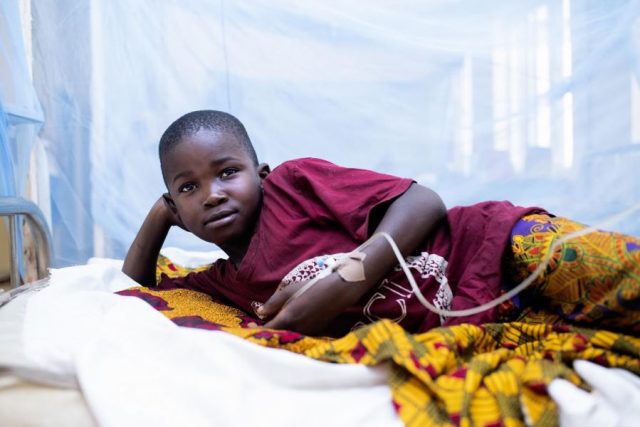…In 2016, deadly outbreaks of yellow fever in Angola and the Democratic Republic of the Congo, with spread to China, put the African continent on notice for this disease
SAT, 06 AUG, 2022-theGBJournal| New films show the impact of yellow fever outbreaks in Taraba State, and the global efforts to eliminate yellow fever epidemics by 2026.
“I lost my second child to yellow fever. It was a very traumatising experience for my family and I,” explains Muhammed Awal, a father of five from Taraba State. “We rushed the child to hospital when he started showing symptoms of the disease, and he died two to three days after, because his internal organs had been very damaged.”
Muhammed describes his family’s tragedy and efforts to ensure protection for the rest of his children in one of two films commissioned by the Eliminate Yellow Fever Epidemics Strategy or EYE. EYE’s goal is to eliminate yellow fever epidemics by 2026, through a single-shot vaccine that gives lifelong immunity, and aims to protect almost 1 billion people in Africa and the Americas.
In 2016, deadly outbreaks of yellow fever in Angola and the Democratic Republic of the Congo, with spread to China, put the African continent on notice for this disease. The EYE Strategy, a partnership between the World Health Organization, UNICEF and Gavi, the Vaccine Alliance, was set up in response and identified Nigeria as a high-risk country.
Nigeria’s population is around 200 million people, with 160 million people at risk of yellow fever. This makes up around 25% of all the people at risk in Africa. Yellow fever is a virus transmitted by infected mosquitoes. Dr Anne Eudes Jean Baptiste, Medical Officer for the World Health Organization Nigeria explains, “yellow fever is dangerous because a small percentage of patients will go through a more toxic phase of the disease. By then they will experience fever, have system failure, mainly in the kidney and liver. They may experience bleeding coming from the mouth, nose and eyes and within 7 to 10 days, half of them will die.”
Home to some of the world’s most densely populated cities, Nigeria is at risk of both urban and sylvatic (jungle) exposure to the disease. Sylvatic exposure is the transmission of yellow fever from mosquitos that have bitten animals and non-human primates. Workers in mining and agriculture are particularly vulnerable to this type of transmission.
In 2017, there was a resurgence in yellow fever in Nigeria after 15 years. This is due to gaps in detection of the disease rather than lack of transmission of the virus and the cyclical nature of sylvatic transmission. As surveillance and laboratory testing have been strengthened, improved information about the distribution of the disease in humans has become available.
Dr Ifedayo M. O Adetifa, Director General of the Nigeria Center for Disease Control, explains, “we have strengthened surveillance considerably. We have reference laboratories in the country that have been strengthened, and are being supported and assessed to make sure they are meeting all the performance parameters in terms of sample collection and referral to our reference labs in Abuja.”
“Despite the ongoing COVID-19 pandemic, we have given out over 66 million doses* in 2020 and 2021 to protect people from yellow fever outbreaks. This achievement has been possible through routine immunization, as well as mass vaccination campaigns that identify gaps in the population and proactively target vulnerable communities.”
Dr Adetifa features in a second film that documents the roll-out of a vaccination campaign in Taraba State, and brings to light the global effort required to keep Nigerians safe.
*This number was estimated at the time of the filming. Actual number for preventive and reactive mass vaccination campaigns is 45 million during the COVID-19 pandemic.
Both films can be viewed here:
Yellow fever: a community’s story – a film by the EYE Strategy – YouTube
Yellow fever vaccination campaign, Taraba State, Nigeria – a film by the EYE Strategy – YouTube
An infographic on Nigeria’s recent history with yellow fever can be found here:
Yellow Fever Infographic Results Report 2020-2021 – YouTube
Further information on the EYE Strategy and yellow fever can be found here:
Yellow fever (who.int)
Eliminate yellow fever epidemics (EYE) strategy 2017-2026 (who.int)
Twitter-@theGBJournal| Facebook-The Government and Business Journal|email: gbj@govbusinessjournal.ng|govandbusinessj@gmail.com










